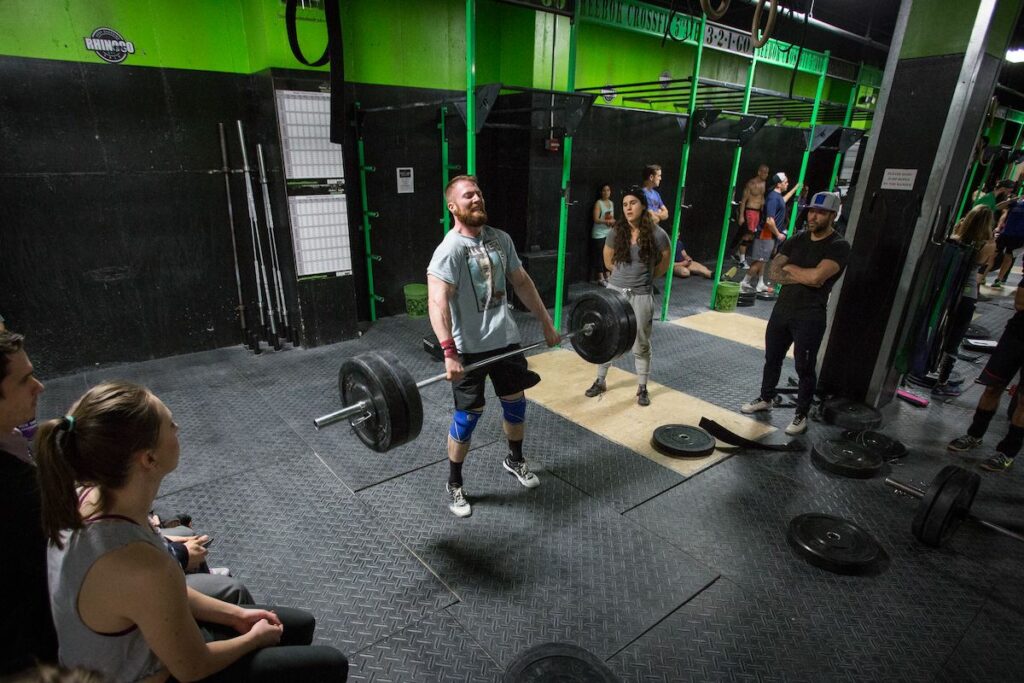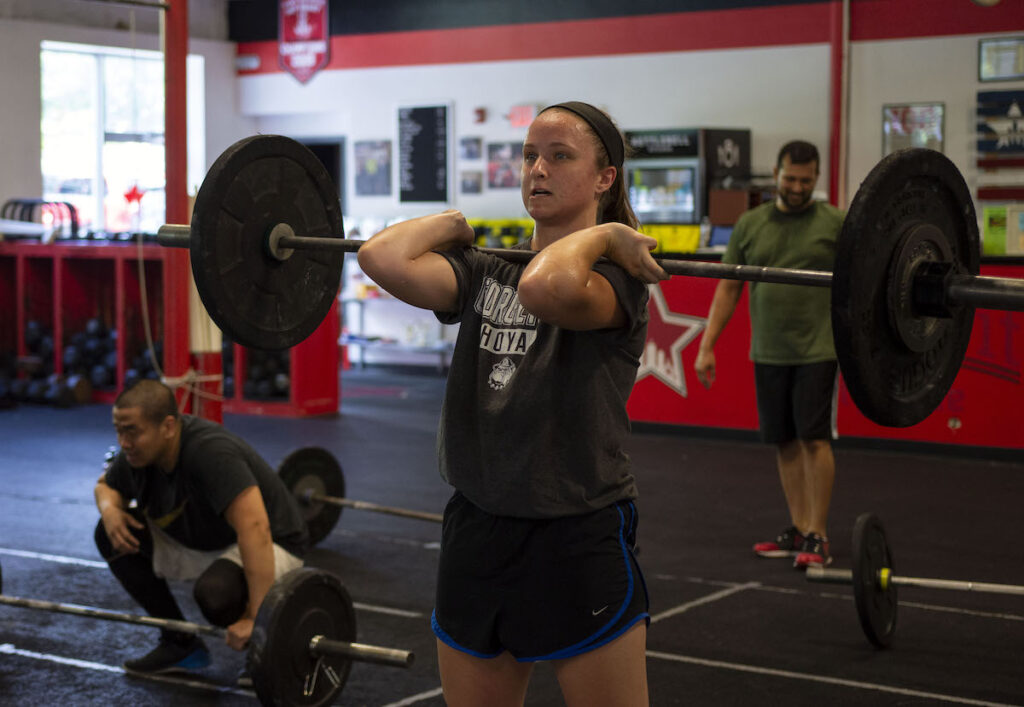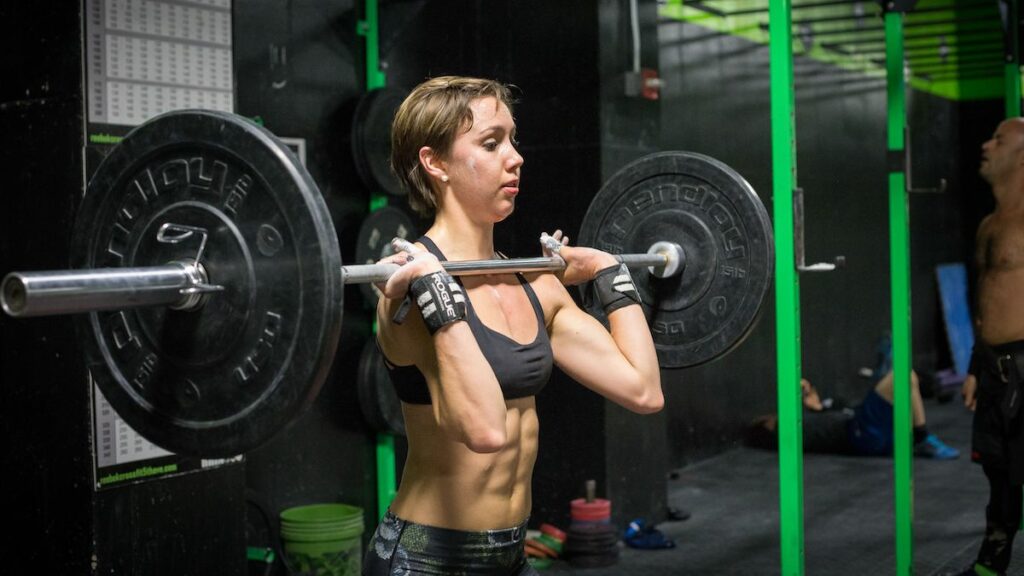Competition is one of the most beautiful human endeavors. It’s through competition that we test our mettle, learn where our limits are, and learn where they could be. In CrossFit, the worldwide Open provides a unique opportunity for us to join as a community and engage in a demanding physical and mental test, one written to suss out the chinks in our armor as individuals, affiliates, and a community.
I’ve coached athletes through the CrossFit Open for the past 5 years, and there is one constant, nagging question, one anxiety, that seems to permeate every single box around the world:
“Should I retest the Open workout?”
Retesting has become a hand-wringing, cold-sweat inducing issue for many athletes. Elite level athletes seeking a Games spot will be retesting some or all of the workouts, no question. Professional athletes have the opportunity to continue their season if they improve by just one second. When our careers are not on the line, we’d think the decision would be less fraught, but that is not the case. So how do we determine if retesting a workout is the right choice for us? Our overall goals have to be the top consideration.

We tend to define our success in the Open based on the leaderboard. This is a source of intense pressure to retest and is a major mistake. Results-based goal setting is problematic for a number of reasons, but the main reason it is inadequate is because it isn’t actionable. We don’t have control over where we stack up on the leaderboard. When we focus on what we don’t have control over, we surrender our peace of mind to fate.
Many athletes struggle with the concept of defining success in a competition outside of placing: isn’t the point to see where we stack up? What else is there?
The answer is quite a bit. Each of these definitions of success are 100% within our control at every moment.
- Effort: First and foremost, learning to determine whether we’re putting in our best effort is critical for any competitor, or any human being for that matter. We can lose an event and still have put everything we had out on the floor. At the end of the day, little else matters in competition or in life.
- Learning: Many of us talk a good game about being forever students, but when it comes to competition, we need to be seen as experts. We get upset when we make errors or learn that our training hasn’t prepared us for the test. Improvement only comes through failure, and while failure is disappointing, it doesn’t define us.
- Staying Present. Focus on the present moment isn’t an easy task in a competition environment. It’s not even an easy task in our regular training environment. The ability to remain undistracted, to be tuned into our breathing, heart rate, and movement creates opportunities for peak performances.
- Having Fun. If there’s no element of fun, then why do it? Having fun doesn’t mean that there won’t be some anxiety or nerves, that’s a part of the experience. Shared “suffering” and a party vibe all contribute to the Open being one of the most fun times of the year.
- Embracing Hardship. There is mental fortitude to be gained through embracing hardship. Can you remain calm if your jump rope breaks in the middle of the workout, or your muscle-ups are disappearing, or if the weight feels heavier than anticipated? Grit is a skill that needs to be practiced in order to develop.
[Related: The hardest CrossFit Open workouts (so far).]
Now that we have a set of alternatives for our definition of success, it’s much easier for us to decide if we should retest. Was the event unsuccessful by our new parameters? Even when the event has been successful, we may consider retesting. No question, there are benefits: it can allow us to see that we’re capable of more than we thought we were or to learn more about workout strategies that suit us.
The next angle we need to assess is Risk versus Reward.
Potential rewards:
- Higher placing.
- Learning something new.
- Embracing hardship.
- Practicing what we learned the first time.
Potential risks:
- Injury.
- Poor recovery that impacts training.
- Poor recovery that impacts quality of life.
Let’s take Open workout 20.5 as an example:
For Time:
40 Muscle-Ups
80 Calorie Row
120 Wall ball Shots
20:00 cap
Partition any way desired.
The partition choices offer many opportunities to learn about strategizing for a workout based on our individual strengths and weaknesses. Retesting likely wouldn’t blow a full week of training to recover from, nor would recovery impact quality of life: we’ll be able to bend over and pick up the groceries if we do this one twice. That said, if any of these movements may aggravate a previously existing injury, we need to consider how that will impact our quality of life, the week’s training, and potentially the rest of the Open.

Some questions to use to assess risk versus reward:
- Do I have any injuries that could be aggravated by this workout?
- If yes, how will that impact my quality of life?
- Am I happily going to live with any negative consequences?
- Would I be happy that I retested if I didn’t improve my score?
- How is embracing the hardship of retesting going to benefit me in the long run?
Coaches are a great resource for determining risk versus reward as well, and are especially helpful if we have a history of pushing ourselves too hard.
The answer to the question, “Should I retest the workout?” comes down to each athlete’s goals.
Why are you participating in the Open? How will you define success for yourself in a way that puts you in control of success at all times? What is the potential risk and reward of retesting? Having concrete answers to these questions will lead to more authentic decision-making and a happier, healthier Open experience.
